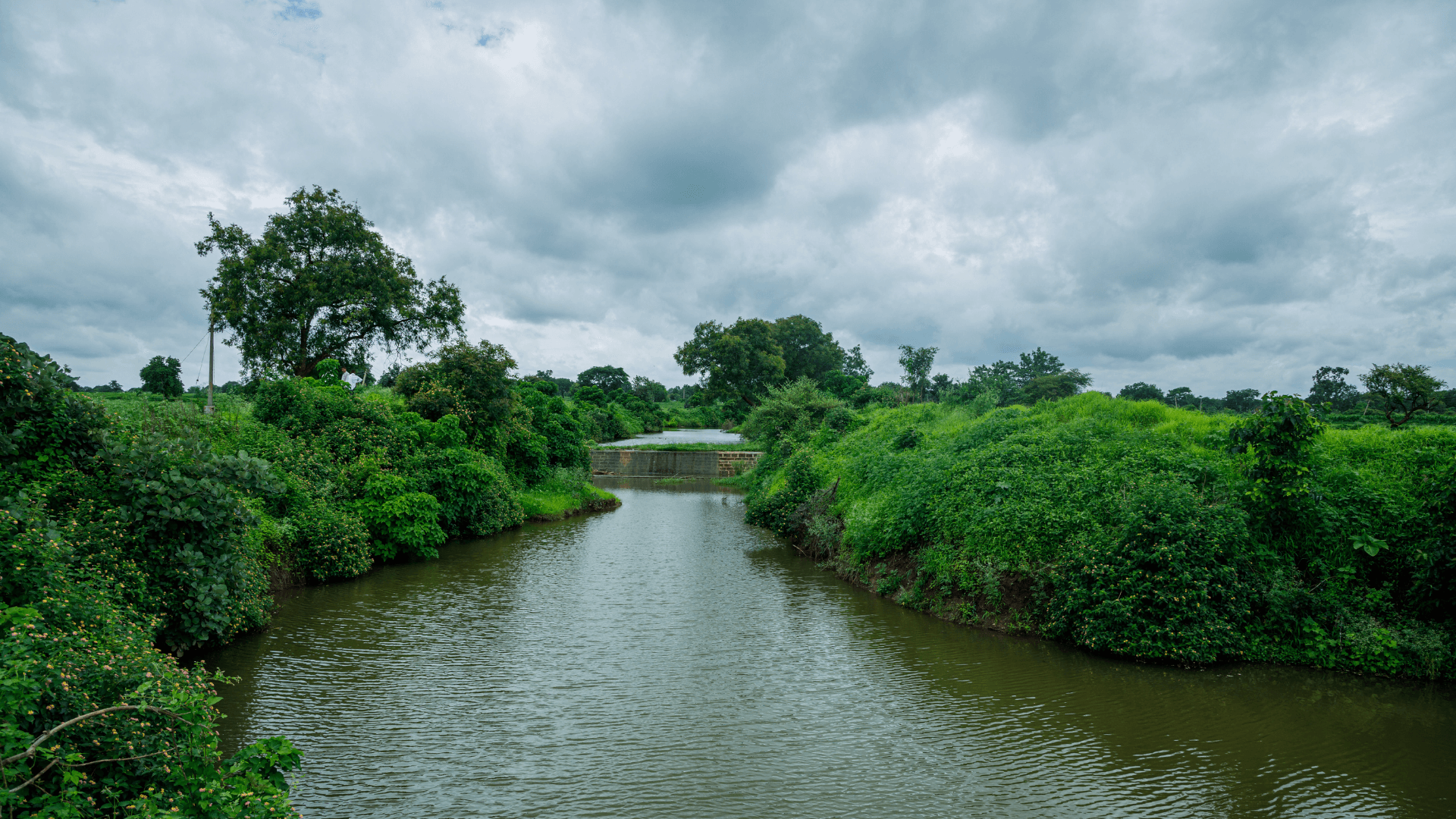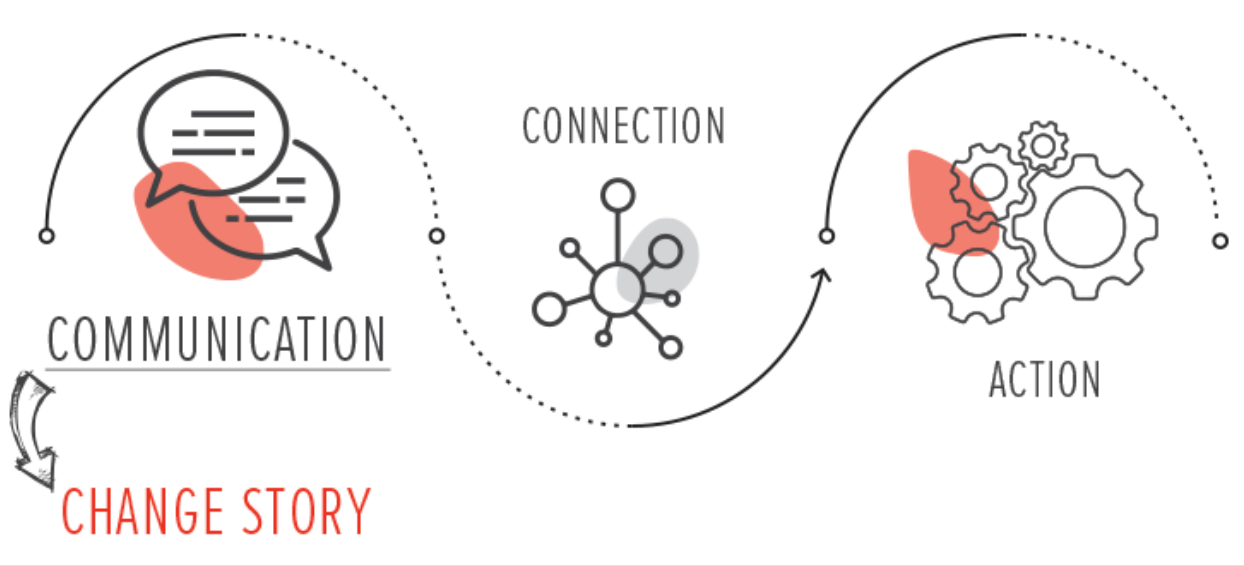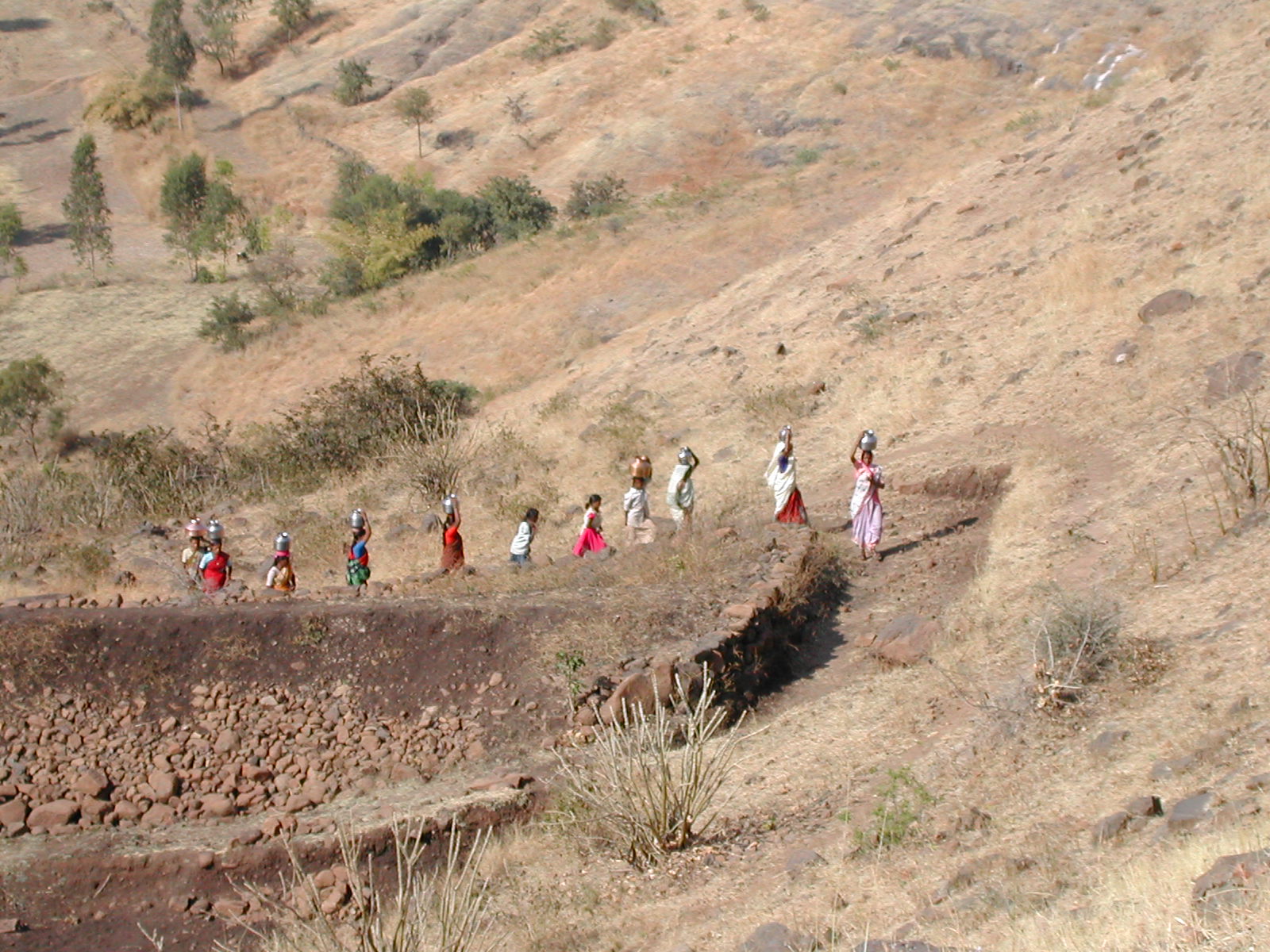
As Wendell Berry once wrote, “The soil is the great connector of lives, the source and destination of all. It is the healer and restorer and resurrector, by which disease passes into health, age into youth, death into life. Without proper care for it, we can have no community, because without proper care for it we can have no life.”
With up to 40% of the world’s land already degraded, we are watching life fade away from our planet. However, there are several solutions that exist to help restore the health of our soils and ensure availability to water – many of which have been spearheaded by communities across India. This year, on June 17th, World Day for Desertification and Drought, ECOBARI hosted a webinar aligned with the theme, United for Land: Our Legacy, Our Future, as a part of the Southbound Resilience Webinar series, supported by Honeywell.
This webinar included a panel discussion between community members from Jharkhand, Uttar Pradesh, and Maharashtra, working with Collectives for Integrated Livelihoods Initiative (CInI – Tata Trusts), Parmarth Samaj Sevi Sansthan, and Watershed Organisation Trust, respectively. The discussion was framed by a keynote speech on the causes and effects of land degradation in India, and the need for vulnerability assessments to help prepare and build resilience. Overall, this panel aimed to outline both the need and potential for Ecosystem-based Adaptation to deal with land degradation and drought in India.
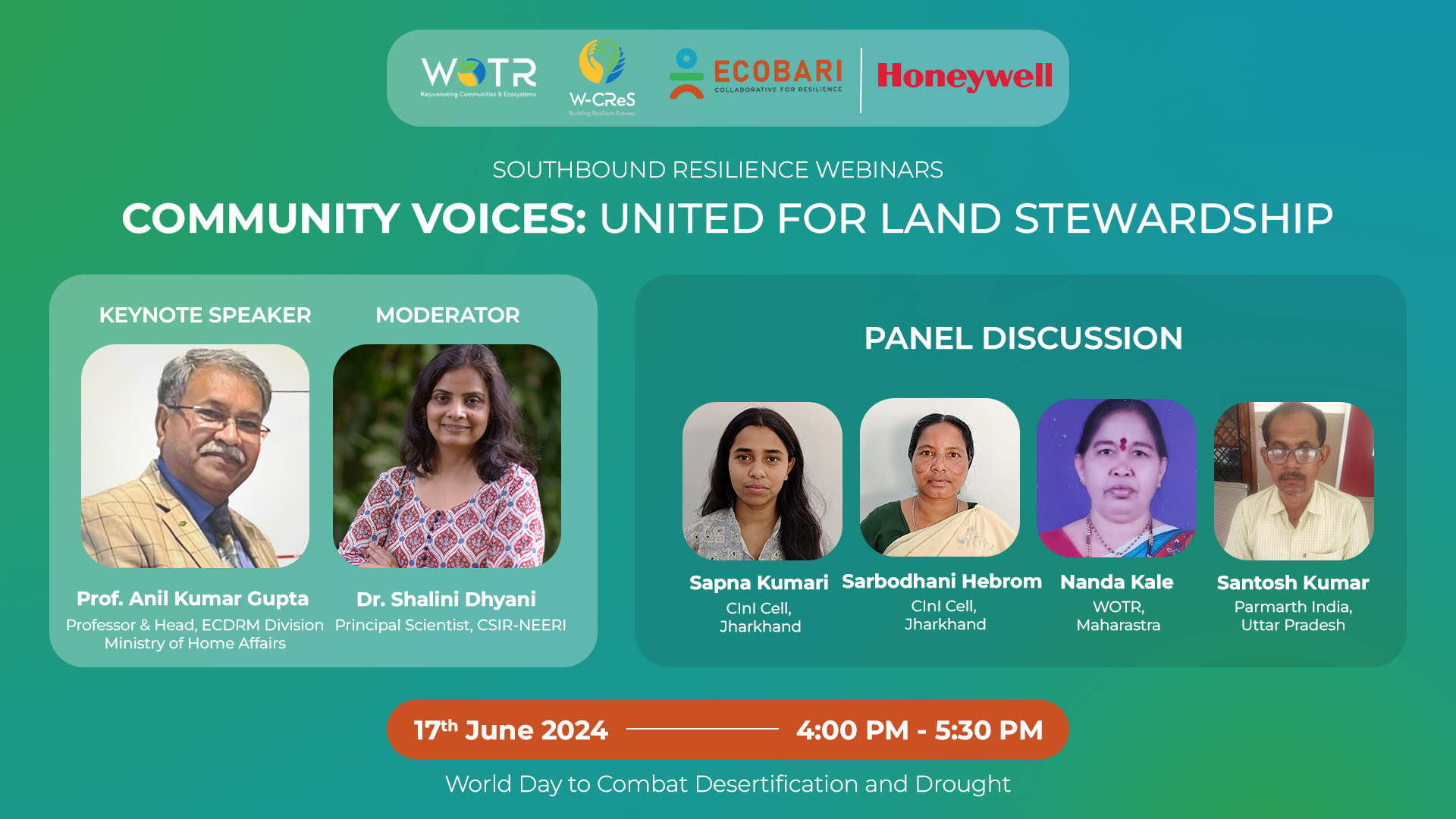
Keynote speech
To set the tone, Prof. Anil Kumar Gupta, Professor and Head of ECDRM Department at NIDM, outlined the need for a more holistic definition of land – one that sees it as a living and dynamic entity that influences the health of other natural and human resources, such as water, air, biodiversity, and the built environment.
As a representative of the Ministry of Home Affairs, Prof. Gupta brought a high-level perspective – outlining the government’s international engagements through the COPs and their targets on land restoration. However, he highlighted the need for deep local engagement to translate targets into reality, which set the tone for the panel discussion to come.
He also gave an overview of the current approach to vulnerability assessments, and advocated for it to go beyond physical factors and include socio-ecological dimensions – because land is critical to sustain the livelihoods and health of people. This perspective, which recognises the interconnectedness between social welfare, ecological health, and climate adaptation, is deeply aligned with the Ecosystem-based Adaptation approach.
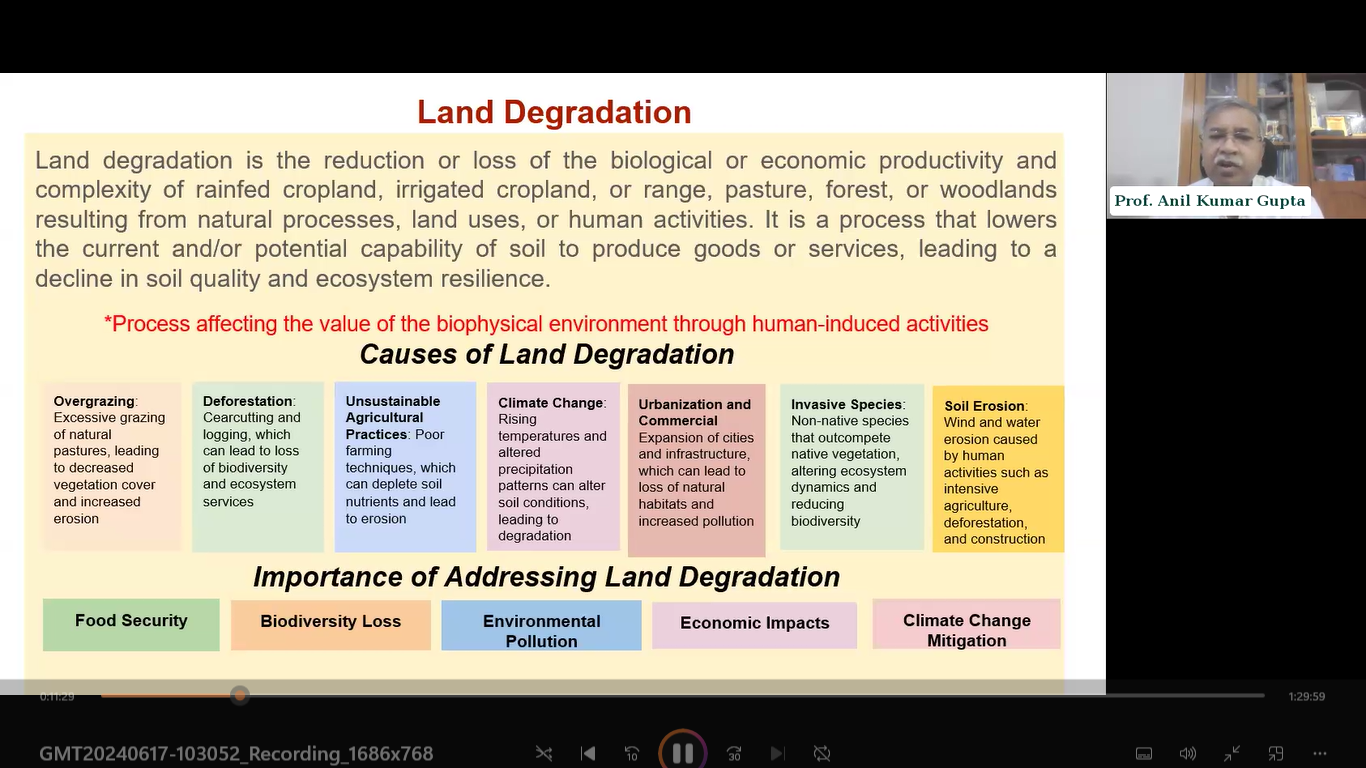
Panel discussion
This discussion was moderated by Dr. Shalini Dhyani, Principal Scientist at CSIR-NEERI, who highlighted the need for India to address rising degradation and drought, as a crisis that can be seen in nearly all parts of the country. Dr. Dhyani’s focus on the need for collaboration between scientists and local communities and the role of women’s leadership helped shape and drive the conversation forward.

Nanda Kale from Ahmednagar district in Maharashtra talked about the essential role that women can play in natural resource management, illustrated by the pioneering role her Mahila Samiti played in WOTR’s watershed development program. Through the Samiti, women were able to lead tree plantations, set up enterprises to ensure access to LPG (and hence reduce dependency on fuelwood), and create natural agricultural inputs. She highlighted the importance of strong local governance to keep the project going over generations, citing examples of local policies on water budgeting and fines against borewells.

Santosh Kumar painted a picture of water woes in the Bundelkhand/Chambal region of Uttar Pradesh. To address these challenges, he worked with Parmarth India for nearly 30 years in an integrated approach to water conservation and sustainable agriculture, enabled by local governance. He highlighted the role of Pani Panchayats and Jal Sahelis in effective water management, as well as the need to engage with the district government to enable projects to achieve scale. A key challenge he highlighted was the need for better market linkages, to help farmers gain a higher value for produce grown without chemical inputs, which can make up for the deficit in production.

Sarbodhani Hebrom and Sapna Kumari, President and Board Member of the Jagruk Mahila Farmer Producer Company Limited, are from Dumka district in Jharkhand. They are associated with CInI’s Lakhpati Kisan initiative, which aims to increase farmer incomes through agricultural diversification, livestock rearing, lac cultivation, and more. Sarbodhani and Sapna have been involved in encouraging farmers to take on more ecologically-aligned practices, including drip irrigation and solar power. They stress the need to have local leaders who can bridge the gap between external organisations and local communities, by communicating through a shared context. Their FPC is also exploring carbon credits as an avenue for additional funds.
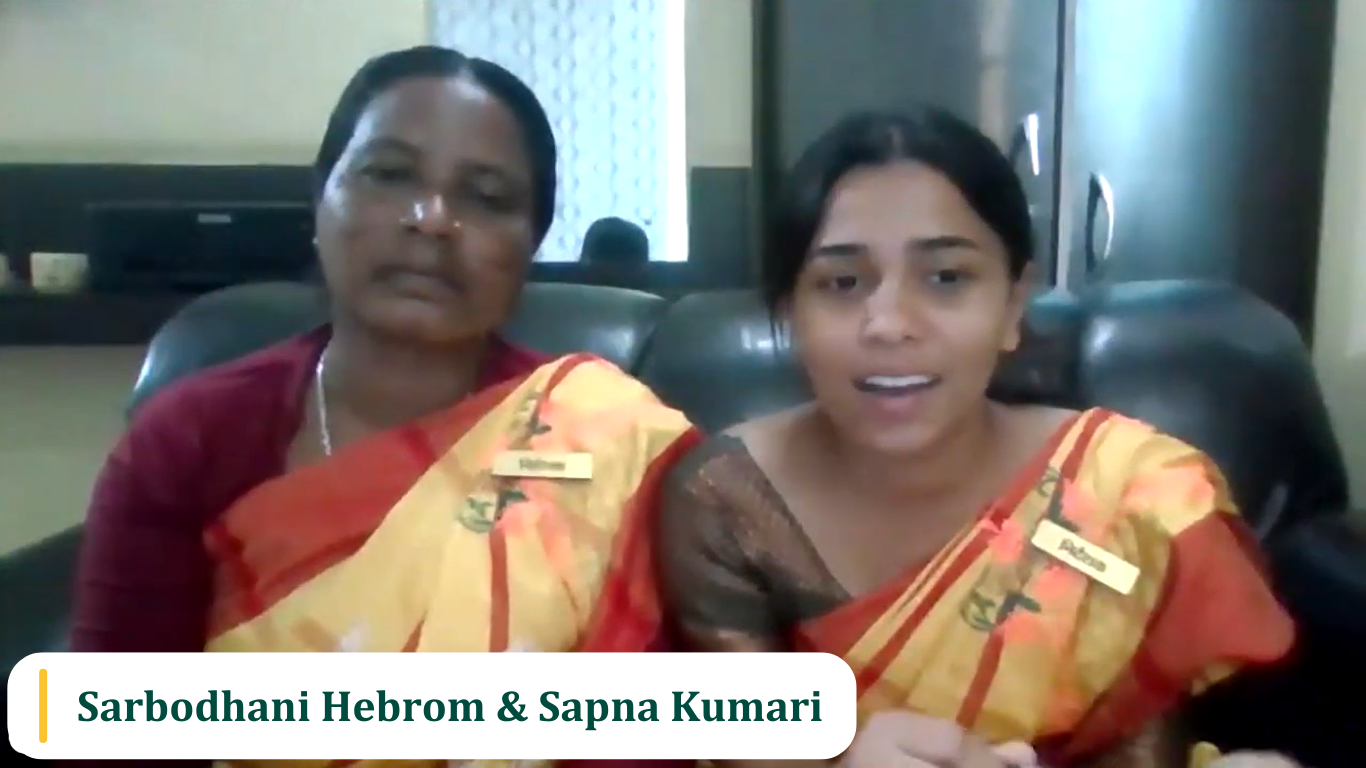
Conclusion
This event showcased perspectives from a range of stakeholders, including policy experts, senior scientists, and local community members. It highlighted the need to look at social, economic, and ecological issues as a continuum – exposing the dependencies between these factors, and their vulnerability to climate change. From an EbA perspective, these discussions underscored the need to clearly assess vulnerabilities, build local capacity to manage natural resources, and restore ecosystems to sustain human livelihoods and health.
ECOBARI’s webinars strive to gather and disseminate these lessons for a brighter, resilient future. The ‘Southbound Resilience Webinar’ series is organised in collaboration with WOTR and W-CReS, and supported by Honeywell Hometown Solutions India Foundation (HHSIF).

